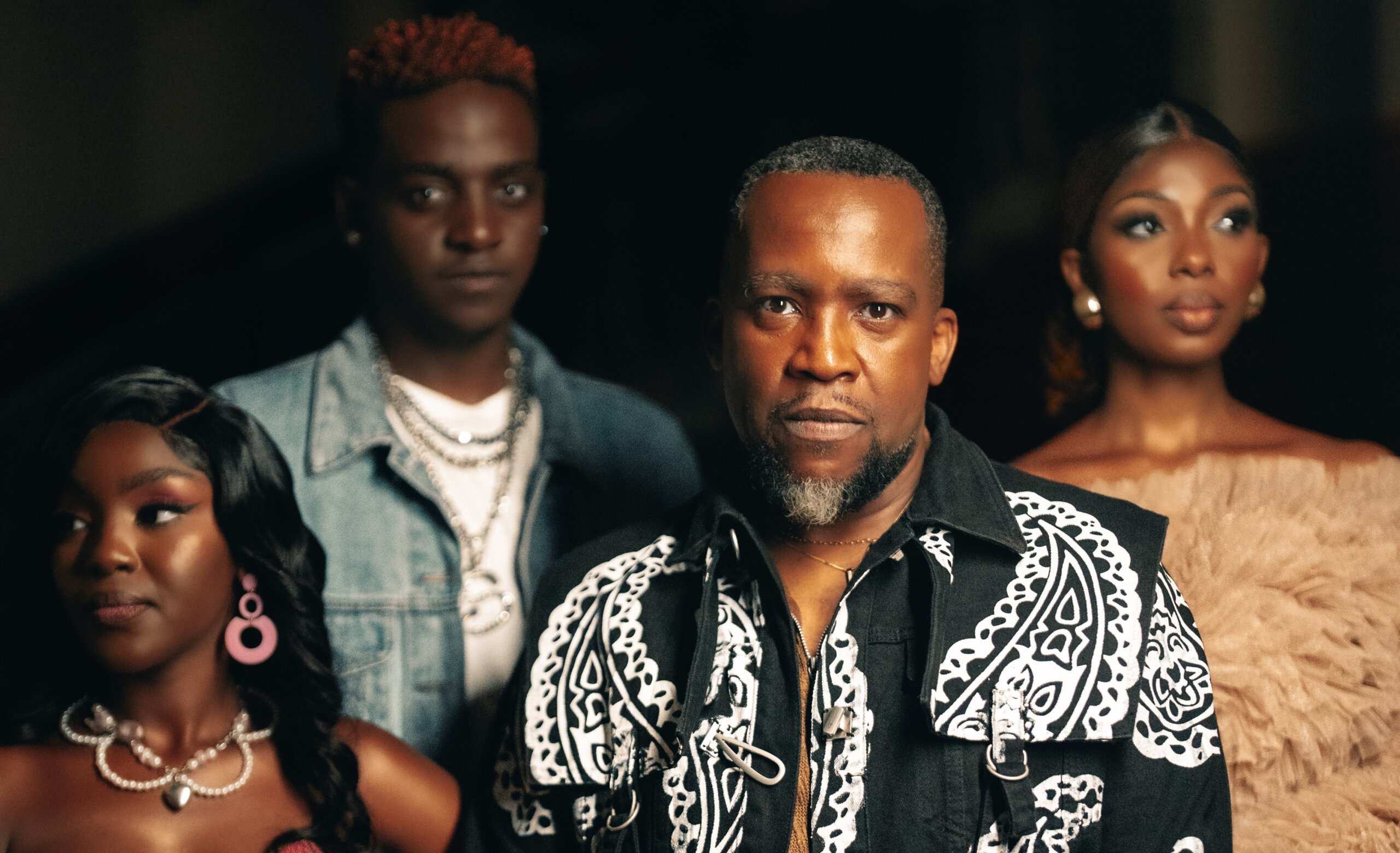Single Kiasi, the Kenyan Showmax drama from Insignia Productions, is just into its second season and has already made a name for itself for its graceful elegance, mainly because it knows how unique the premise of its show is to the Kenyan audience. Outside of Africa, shows made for female audiences have existed for decades, with shows like Sex in the City or recent cultural masterpieces such as Insecure. Coming with a high audience and a lot of potential, Single Kiasi squeezes into this category, allowed to tell the stories and lives of women, filled with themes and roles personal to most of them, described in their own language, and embued with enough flair and extravagance to compel the interest of those familiar with the format and those simply watching the latest Kenyan show.
As ground-breaking as Single Kiasi may be, that’s not to say such shows haven’t existed on our screens, far from it. We’ve had shows like Sumu la Penzi and Wash and Set, which, like Single Kiasi, are made for female audiences. Single Kiasi, a Kenyan adaptation of a South African series Unmarried, is, however, made for a more mature audience with sex scenes, themes, and language not meant for the casual evening family watch. Finding its own language for the modern audience it wants to embrace, it drips us through the perspective of three articulate, lively, and well-defined best friends up and down through their pits and exaltation in a thirty-minute episodic format.
The pilot sets up the three women: Rebecca aka Becca (Faith Kibathi, This is Life), a stay-at-home mother of two, too preoccupied with her maternal and wifely duties to have a life; Mariah (Minnie Kariuki, The Real Housewives of Nairobi), a socialite living her best life through the wallet of a sponsor; and Sintamei (Gathoni Mutua, Crime and Justice), an efficacious high-end lawyer whose perfect marriage collapses in the most dramatic of fashion.
This first episode suffers while trying to set up three main leads in their separate lives, not adequately fleshing them out or their minor characters except for their basic stereotypes. Sintamei’s story starts the show off, with her divorce padding the runtime with inconsequential family drama while setting her up as a tough and resilient heroine who just wants a family to call her own. As the episodes progress, Rebecca’s own life begins to spiral, and she discovers the family she has been so dedicated to is not what she thought. She embarks on her own journey to discover herself intimately and expressively while still maintaining her responsibility for the people around her. I loved her character arc through the first season most, mainly because of the three women; her arc felt most organic, and when she returns to her kitchen by the end of it all, everything about her feels different. So, huge props on writing this character. Mariah’s story also picks up slowly, as a slight mistake she makes leads into the complete spiral of her life, dosed with a full reality check on her ageing, celebrity status, and value to the people she depends on. The story explores her upbringing, drenching the viewer in themes that similar local shows before it have steered clear of, and from the depths of hell, the phoenix rises again into the star that she was, albeit unchanged.
Balancing little bouts of comedy, romance, family squabbles, and sexual escapades all within the office politics, household dynamics, and dating scene in Nairobi, Single Kiasi’s season sets itself up for some good moments and a narrative that builds itself up episode by episode. From a production angle, the crew delivers a distinct look and feel, from the lighting to the locations. However, the show’s writing relies a bit too much on female problems as they pertain to men; it doesn’t do too well on the Bechdel test, but for the most part, the makers understand that’s where all the scintillating juices are for their audience. For season one, my biggest gripe with Single Kiasi’s writing and characterisation is Mariah; unlike her compatriots, she is still the same person at the show’s end. Sure, something is lurking in the waters, setting her up for the next season, but she seems left behind in an overgrown façade when the battles she has gone through are supposed to change her and toughen her up in a way. Or destroy her. I don’t know. It just can’t remain the same.
Single Kiasi’s second season, which recently aired its final episode, follows the aftermath of the season one finale’s episode while also introducing dense character shifts and monumental moments that happened in between the last time these characters graced our screens. Becca is struggling financially after her now-rich husband (played by Michael Munyoki, A Grand Little Lie) sows his oats with a new fling after closing the last season with a cliffhanger. Sintamei is looking forward to her new life as a mother and the consequences of her lustful adventures. Mariah has experienced the loss of her benefactor, and the series opens with a rather uncomfortable funeral session that outlasts itself in an already-packed pilot episode.
We also meet Olivia (Grace Wacuka, Married to Work), a new addition to the dynamic who instantly brushes herself into the story as Sintamei’s confidant and business partner and a real nemesis for Mariah. Her presence shifts the series dynamic for a while, especially since her solutions for taking her friend out of her grief are way better than the ones offered by her best friends in the opening of season one. But she too, like the show has shown itself inconsiderate to avoid, gets dragged into another love triangle that throws her out of the narrative. Becca’s story, the saving grace from the last series, is thrown around, from escaping the landlord to getting a job to suddenly being in a lecture hall studying economics for nothing more than creating little vignettes of sex scenes. There are more than a few table scenes with the ladies talking about their experiences, and very little of them is about their growth through the process, just reminding the audience what they already know. Arguments are forgotten in the next scenes, so much so that the season ends with Becca saying no to a man in the most assured tone to only say yes to his engagement in literally the next scene they meet.
Single Kiasi is a beautiful show to look at. The makers of the show know what they are selling. From lushly overstimulated montages of food or makeup or overly directed scenes like a cool-looking camera drag between a mother and her son to hiring enough extras in every scene to make the nightlife of these characters feel as authentic as possible. This painfully detailed description of the world around the people they are shooting is great filmmaking, and if not for anything else, that alone elevates Single Kiasi as one of the more unique Kenyan creations out there. Even going as far as integrating well-known celebrities like Joy Kendi and Kagwe Mungai to appear as cameos in this world shows the confidence they have to create enticing moments for their audience. This is one of the most accurate depictions of real-life Nairobi.
But like in real life, there is a lot that goes unsaid. And for a series that sells so much emotion, it can remain unsaid but should never be left unseen. Characters come in and out of the narrative so haphazardly that our three main leads are only ever seen briefly outside the plot-intensive scenes. A lot of strong themes are tossed around, from death, miscarriage, heart attacks, heartbreaks, betrayal, marriage and divorce, childhood trauma, you name it. But none ever outlasts its welcome to encroach on the next. But they should. They have to, or it never grows them or, least of all, makes the audience care for them. We need to see a mother care for her child outside when the story uses the child as a prop to show adult life. Or a socialite as anything more than just that, even if it’s by herself on a vacation. We need to see anything about these characters outside of romantic dances, sexually pumped lecture scenes, or underwritten office politics. I was hoping the inclusion of Wacuka’s Olivia would offer that because even in an overtly sexual painting scene at the beginning of season two, it was merely a front for the girls to open up. The show could have used more of her. Even the landlord had to fall into the messy, undercut lust triangles. No one is ever safe, so much so that when past affairs reappear, the surprise rarely hits as hard as it should. I’m looking at you, Ian Mbugua.
In conclusion, Single Kiasi is good enough to have on a cosy weekend binge that will have you smiling and enjoying good filmmaking, maybe more than once. But I doubt it will punch differently on different rewatches. That’s what makes shows like Sex and the City or Insecure so iconic: you rewatch them at a different age and feel like you are watching them again from a newer perspective because you grow with the characters, not the familiar things that happen in their lives. You fall in love with characters, not their lives. And for that, I remain curious about their next season, but less so a devoted fan.
Single Kiasi S1-2 are available to stream on Showmax.
Enjoyed this article?
To receive the latest updates from Sinema Focus directly to your inbox, subscribe now.











